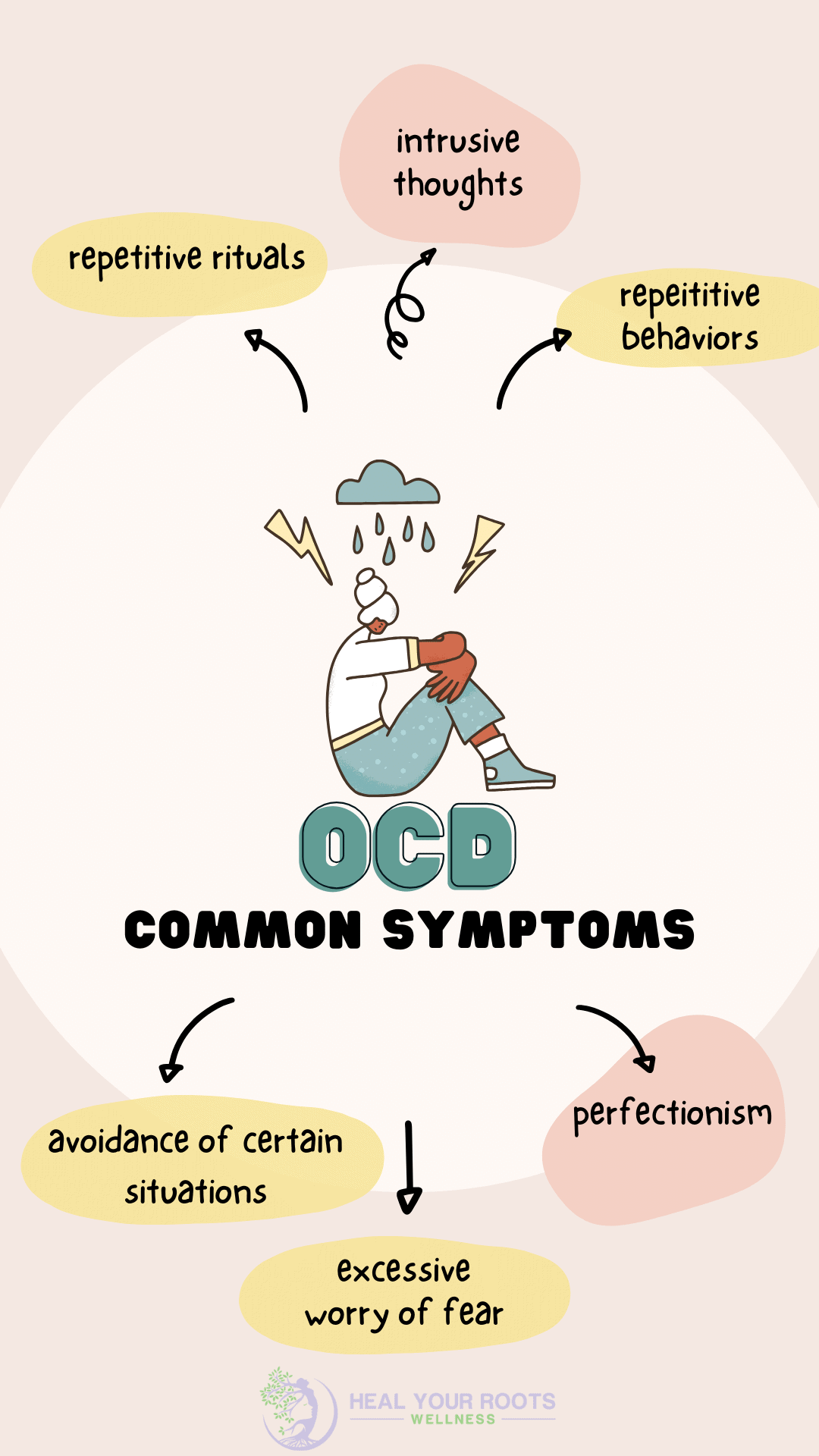What is OCD?
At its core, OCD is about the relationship between obsessions—persistent, unwanted thoughts that provoke distress—and compulsions—repetitive behaviors aimed at reducing the anxiety caused by these thoughts. These obsessions can manifest in a variety of ways, ranging from fear of contamination and excessive doubts to taboo thoughts and perfectionism. Compulsions, on the other hand, often involve repetitive actions or rituals aimed at preventing or neutralizing the perceived harm caused by these obsessions.
Explanation of Obsessions and Compulsions
Obsessions are intrusive and often irrational thoughts that cause significant distress. In response, individuals with OCD engage in compulsions, which are behaviors or mental acts performed to alleviate the discomfort caused by the obsessions. This cycle of obsession and compulsion can be highly disruptive to daily life.
How is OCD Treated?
One of the most common and effective treatments for OCD is cognitive-behavioral therapy (CBT), specifically Exposure and Response Prevention (ERP). In this type of therapy, individuals are gradually exposed to their obsessions while learning to resist engaging in compulsions. This approach helps break the cycle of obsession and compulsion, leading to a reduction in symptoms and improved overall functioning. access mental health professionals from the comfort and safety of their own homes. This can be especially useful for those with mobility issues or those who may face stigma seeking care in person.
Treatment Approaches for OCD
Effective treatment for OCD typically involves specialized therapeutic techniques that differ significantly from those used for general anxiety.
Overview of Exposure and Response Prevention (ERP)
ERP, a mainstay in OCD treatment, involves controlled exposure to the thoughts, images, or situations that trigger the obsessions, coupled with the prevention of the corresponding compulsive behavior.
The Role of Cognitive-Behavioral Therapy in Treating OCD
Cognitive-Behavioral Therapy (CBT) helps individuals with OCD to challenge and alter their irrational thought patterns, providing tools to manage the distress caused by obsessions.

Common Signs and Symptoms of OCD
While there are many forms of OCD, common signs and symptoms include excessive worry or fear, perfectionism, repetitive behaviors or rituals, intrusive thoughts, and avoidance of certain situations. It’s essential to seek professional help if these symptom patterns persist and significantly impact daily life.
To understand OCD, it’s crucial to recognize its key signs and symptoms. These include intrusive thoughts, repeated behaviors or rituals, avoidance of triggers, and significant distress or impairment in daily life.
Common Misconceptions about OCD
Many people’s understanding of OCD is limited to stereotypes involving excessive cleanliness or organization. However, the disorder encompasses a much broader range of behaviors and thought patterns, often less visible and more complex than commonly portrayed. “OCD is not just regular anxiety; it’s a distinct disorder that requires specialized understanding and treatment,” explains Dr. Katie Manganello on Beyond Anxiety: Deeper Dive into OCD Diagnosis, an episode of Heal Your Roots Podcast. This distinction is crucial, as treating OCD as a mere anxiety disorder can lead to ineffective treatment approaches.
Seeking Help: Therapy Options for OCD
As with any mental health condition, seeking professional help is essential in managing OCD. Dr. Manganello stresses the importance of evidence-based treatments like Cognitive Behavioral Therapy (CBT) and Exposure and Response Prevention (ERP). These approaches focus on understanding the disorder’s root causes and providing practical strategies to manage symptoms and improve quality of life.
Benefits of Online Therapy for OCD
Online therapy offers individuals with OCD convenient, accessible, and discreet treatment options. With qualified therapists specializing in OCD, patients can receive personalized support from the comfort of their homes while maintaining privacy. Additionally, online therapy eliminates geographical barriers and allows for flexible scheduling, making it an excellent option for individuals with busy schedules or limited access to in-person therapy.
The Role of Therapist Qualifications in Successful Treatment
Working with qualified therapists who specialize in OCD is essential to ensure effective treatment and progress towards recovery. With a thorough understanding of the disorder, therapists can tailor treatment plans to address an individual’s unique symptoms and needs.
Managing OCD for a Better Quality of Life
OCD can significantly impact daily life, causing distress and impairing functioning. However, proper diagnosis and evidence-based treatment can lead to significant improvements in managing symptoms and living a fulfilling life. With the right support, individuals with OCD can learn to break free from the cycle of obsessions and compulsions and regain control over their thoughts and behaviors.






